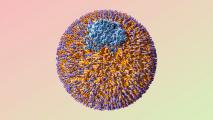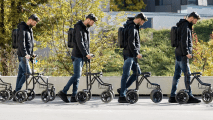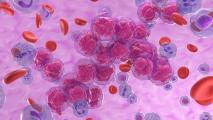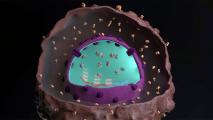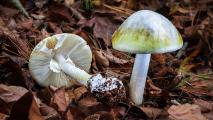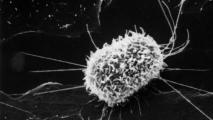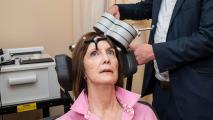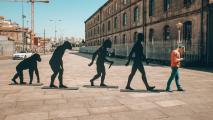
Biotech
Human history has been all but defined by death and disease, plague and pandemic. Advancements in 20th century medicine changed all of that. Now advancements in 21st century medicine promise to go even further. Could we bring about an end to disease? Reverse aging? Give hearing to the deaf and sight to the blind? The answer may be yes. And soon.
More
The first 10 minutes of sleep can unlock your creative potential
According to prior research, the first ten minutes of sleep, called N1, can provide a creative boost when it comes to solving problems.
CRISPR tool slashes bad cholesterol by 56% in monkeys
Tune Therapeutics has successfully lowered the cholesterol levels of monkeys using a version of CRISPR that doesn’t permanently alter DNA.
Chronic pain can be objectively measured using brain signals
Even though pain is universal and we know it happens in the brain, we’ve never before had a way to objectively measure its intensity.
New nasal spray aimed at reversing fentanyl overdoses is now approved
A new overdose-reversing spray that works fast but lasts longer has been approved by the FDA, and will be available by the fall at earliest.
Do we finally know what causes Alzheimer’s?
The first treatments proven to slow cognitive decline in Alzheimer’s are helping settle a decades-long debate about how the disease starts.
Here’s how growing plants on the Moon could benefit Earth
Making plants grow on the Moon could be instrumental in helping gardens to grow greener on Earth in the face of climate change.
Paralyzed man walks again using only his thoughts
A man with paralyzed legs is walking again thanks to a “digital bridge” between his brain and a spinal stimulator.
This “bridge” between chemo and cancer solves a big problem for treatment
To improve leukemia treatment, Australian researchers have created a bispecific antibody that connects chemo drugs to cancer cells.
This new watch-like wearable measures blood pressure 24/7
A Swiss company has developed a lightweight, comfortable bracelet which can provide constant and accurate information about blood pressure.
Pill version of obesity drug reduced weight almost 13% in new trial
Novo Nordisk has announced positive results for an oral version of the popular weight loss drug sold as Ozempic and Wegovy.
Cancer treatment is about to get a reboot, thanks to AI
Techniques borrowed from astrophysics are helping to advance personalized cancer treatments beyond what genetics can tell us.
CRISPR uncovers possible antidote for death cap mushroom poisoning
Researchers have figured out how the mushroom’s main toxin enters human cells — and maybe how to stop it.
New kind of chicken lays eggs that don’t have allergy protein
Newly created gene-edited hens lay eggs without ovomucoid, the protein most likely to trigger an egg allergy.
Did life evolve more than once? Researchers are closing in on an answer
Current scientific consensus is that life emerged from non-living molecules in a process called abiogenesis. But if life emerged once, why not more times?
Depression treatment reverses “backwards” brain signals
Transcranial magnetic stimulation (TMS) appears to relieve depression by correcting brain signals that are traveling the wrong direction.
Older people were 3x stronger at the end of this science-backed 8-week program
But what if you’re in your 60s, 70s, 80s or 90s? Is it “too late” to build muscle and fight sarcopenia? Here’s what the research says.
The AI healthcare revolution has begun
The ability of AI to diagnose diseases, discover drugs, and even perform surgery is increasing rapidly — but will patients accept Dr. AI?
We’re analysing DNA from ancient and modern humans to create a “family tree of everyone”
Genetic genealogy not only helps us understand where we came from, but it could also be used for tracing the origin of genetic mutations.
Something found in bats could help us survive infections and inflammation
This protein may help bats survive viral infections and could be the springboard for new anti-inflammatory drugs.
Like hungry locusts, humans can easily be tricked into overeating
Our bodies crave more food if we haven’t had enough protein — especially if we’re reaching for ultraprocessed foods.
Get inspired with the most innovative stories shaping the world around us.














